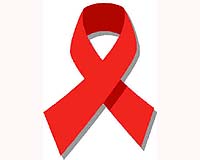| . |  |
. |
New Delhi (UPI) Apr 7, 2011 Researchers say they discovered antibiotic-resistant super bugs in New Delhi's water. The findings, published Thursday in the British medical journal The Lancet Infectious Diseases, indicate that the bacterial strain NDM-1 -- named after New Delhi -- is no longer a hospital-born infection but is found in the environment. Researchers collected 50 public tap water samples and 171 swabs of seepage water from sites within a 7.45-mile radius of central New Delhi from September-October last year. The NDM-1 gene was found in two of the 50 drinking water samples and 51 of 171 seepage samples. Researchers then identified 11 new species of bacteria carrying the NDM-1 gene, including strains that cause cholera and dysentery. Study leader Professor Timothy Walsh of Cardiff University referred to the results as "extremely worrying." "We found resistant bacteria in public water used for drinking, washing and food preparation and also in pools and rivulets in heavily populated areas where children play," he said, the BBC reports. "The spread of resistance to cholera and to a potential-untreatable strain of dysentery is also a cause for extreme concern." The transfer rate -- the rate at which the NDM-1 gene is copied and transferred between different bacteria -- was highest at 86 degrees Fahrenheit, the temperature prevalent in New Delhi for seven months of the year, from April to October, the researchers say. Those months include the monsoon season, when floods and drain overflows are common and could spread the resistant bacteria. While oral-fecal transmission of drug-resistant bacteria is a problem worldwide, the study said, In India, "this transmission represents a serious problem as 650 million citizens do not have access to a flush toilet and even more probably do not have access to clean water." Studies are being carried out by collecting environmental and fecal samples from a city close to New Delhi to determine the severity of the situation, said Mohammed Shahid of the Jawaharlal Nehru Medical College and Hospital in India's Uttar Pradesh, The Times of India reports. The publication Thursday of the study findings coincides with World Health Day, which this year is dedicated to preserving the healing powers of existing antibiotics. "In the absence of urgent corrective and protective actions, the world is heading towards a post-antibiotic era, in which many common infections will no longer have a cure," said World Health Organization Director General Dr. Margaret Chan, in a statement.
Share This Article With Planet Earth
Related Links Epidemics on Earth - Bird Flu, HIV/AIDS, Ebola
 After 30 years, war on AIDS at 'moment of truth'
After 30 years, war on AIDS at 'moment of truth'Nairobi (AFP) March 31, 2011 With the war on AIDS nearing its 30th anniversary, the UN on Thursday declared "a moment of truth" had come for new strategies to address the campaign's failures and brake costs that were now unsustainable. "We have a unique opportunity to take stock of the progress and to critically and honestly assess the barriers that keep us shackled to a reality in which the epidemic continues to outpac ... read more |
|
| The content herein, unless otherwise known to be public domain, are Copyright 1995-2010 - SpaceDaily. AFP and UPI Wire Stories are copyright Agence France-Presse and United Press International. ESA Portal Reports are copyright European Space Agency. All NASA sourced material is public domain. Additional copyrights may apply in whole or part to other bona fide parties. Advertising does not imply endorsement,agreement or approval of any opinions, statements or information provided by SpaceDaily on any Web page published or hosted by SpaceDaily. Privacy Statement |